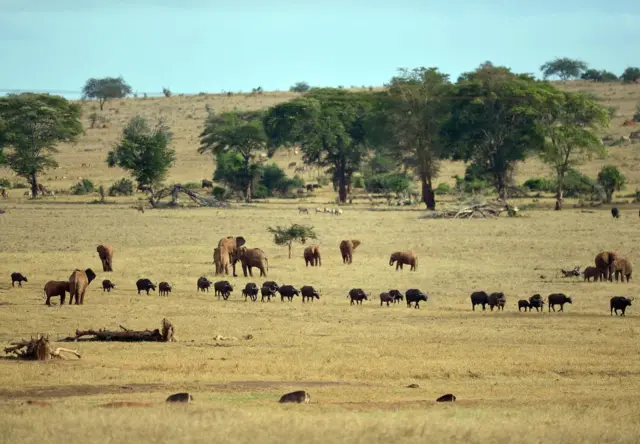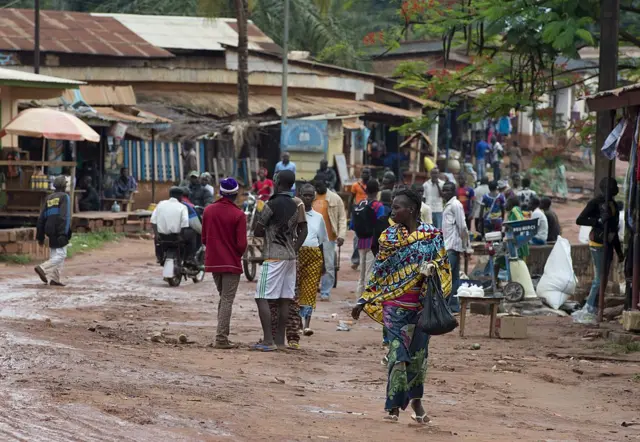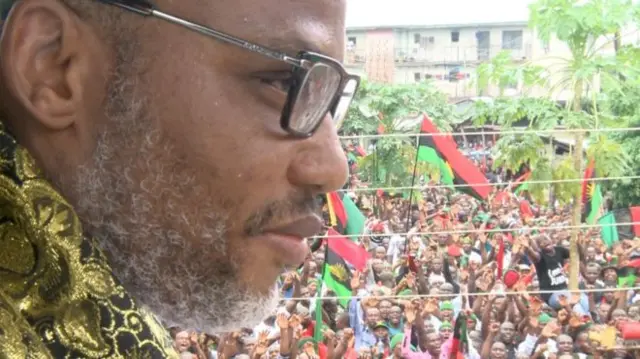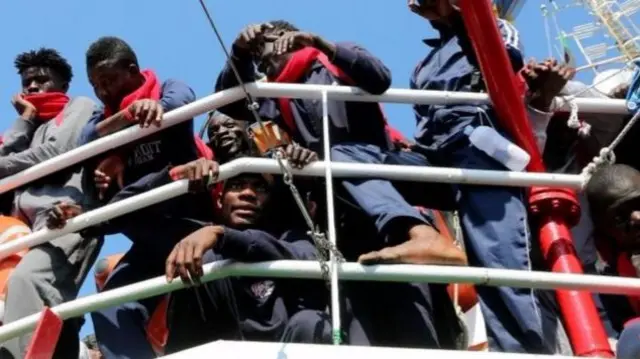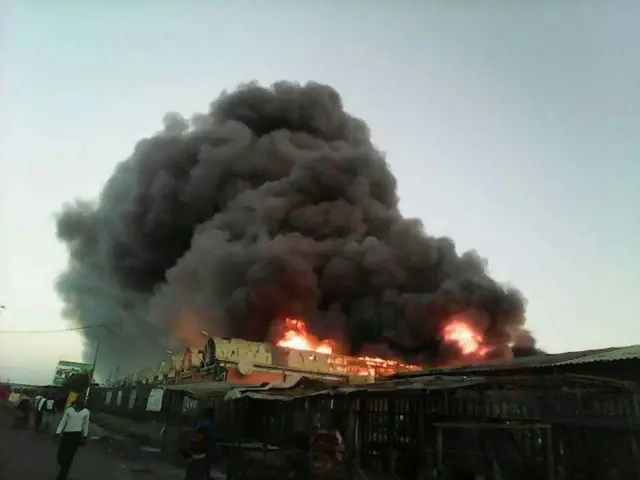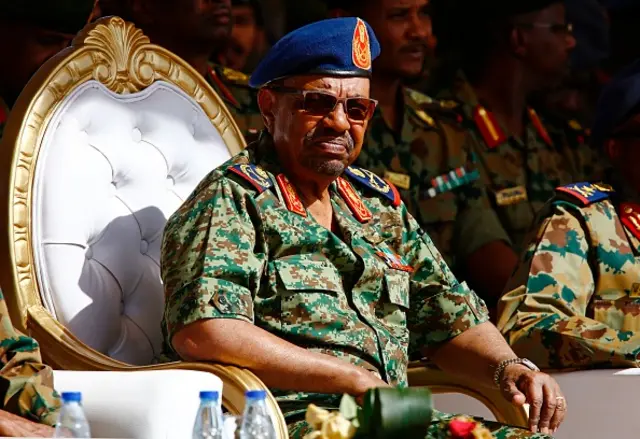South African Zulu dancers arrived at wrong schoolpublished at 11:45 BST 6 July 2017
A group of South African dancers, The Lions of Zululand, took a UK school by surprise when they turned up at the wrong address.
The group gave two performances to pupils at St Anne's in Welton, East Yorkshire but should have been at a school in London.
Teachers and pupils at the school were happy to be treated to an unplanned and enjoyable performance:
A South African group of Zulu dancers arrived at the wrong venue.

